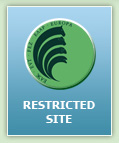Important Notice
For more information about the EAAP Researchers' database, please browse here.
This page has been
visited
 times
times
since
13 Sept. 2012
Date last up-dating:
13/09/2012
Ten Years CEEC WG
A short abstract on ten years of programs and activities of EAAP in support of the animal production sector in Central and Eastern European Countries
The situation created in central and eastern European countries during the process of transition from the centrally planned to the market oriented economic system imposed the need for adjustments in programs and activities of many international organisations. The EAAP was among the first to react: on the basis of an analysis of the impact of economic changes on the animal production sector in its member countries concerned, it established a special Task Force to carry out activities in support of the restructuring of the sector in CEE countries. After the "Mediterranean Symposia" group created in the early 80s, this was the second specialised form through which EAAP strives to tackle specific problems at the sub-regional level.
The Task Force which was composed of representatives from the EAAP Member Countries and interested international organisations (FAO, OIE, World Bank, European Union) organised a series of round tables and workshops with a view to addressing specific issues relevant to the process of transition. In the period 1991-94, over 380 experts attending seven workshops have produced a number of technical papers containing information on situation and problems of the animal production in respective countries, the West-European experience and proposals for action at national and international levels.
In 1994, drawing on the experience of the Task Force, the Contact Group for CEEC was established with the mandate to promote cooperation between West and East European members of EAAP, to organise joint activities and to contribute to the planning of the EAAP programmes in accordance with needs and interests of its members from the sub-region. The main achievements of the Contact Group in the period 1994-2000 were the organisation of sixteen workshops (animal identification, producers associations, breeding strategies, quality of animal products, investments in animal production, protein feed for animal production and others) and introduction of problems of CEE countries in programmes of the EAAP Study Commissions.
The 52 EAAP Annual Meeting to be held in Budapest, Hungary, in August 2001, focused on changes in animal production systems during the transition, quality of animal products and the use of ensiled feed in animal production.
After long interaction, the European Commission approved in January 2001 a grant for the project aimed at supporting the restructuring of cattle breeders' associations in CEE countries as business representative organisations and at increasing their capacity in providing services to its members. The project is based on partnership and joint operations between associations from three EU countries (Austria, Germany and Italy), eight CEE countries (Czech Republic, Estonia, Hungary, Lithuania, Poland, Romania, Slovakia and Slovenia) and the EAAP as the Project Leader.
During its ten years of existence the Task Force and then the Contact Group were at the origin of an impressive number of publications produced under auspices of EAAP and co-operating national and international organisations and institutions:
- First Round Table on the livestock
production sector in Eastern Europe as affected by current
changes. Budapest, Hungary, April 1991. Eds. J. Boyazoglu, J.
Renaud (EAAP Publication Series No. 57, 1992).
Second Round Table, Berlin, Germany. A case study on Eastern Germany. January 1992 (FAO/REUR Technical Series 24, 1993) - Third Round Table, Warsaw, Poland, February 1993. Case study of Poland, (FAO/REUR Technical Series 73).
- Research Strategy for Animal Production in Europe in the 21st Century (EAAP Publication Series No.64, 1993).
- Self-Help Organisations in Livestock Production, Workshop in Berlin, Germany, January 1994 (FAO/REUR Technical Series No. 37, 1994).
- Quality Control and Requirements for Food of Animal Origin. Workshop in Verona, Italy, March 1994. (FAO/REUR Technical Series 40, 1995).
- Fourth Round Table, Zagreb, Croatia, April 1994 (FAO/REUR Technical Series 44, 1996)
- The Task Force on Animal Production in
Central and eastern Europe: 1991-96. Evaluation report (1996).
(FAO/REU Technical Series 43).
Breeding Strategies for Cattle, Sheep and Pigs in Central and Eastern Europe, Workshop in Berlin, Germany, January 1996. (FAO/REU Technical Series 47, 1997).Organisation and Funding of Animal Production research in Central and Eastern Europe, Workshop at Herceghalom, Hungary, September 1996. (FAO/REU Technical Series 48, 1997). - Sheep and Goat Production in Central and Eastern European Countries, Workshop in Budapest, Hungary, November 1997. (FAO/REU Technical Series 50, 1998).
- Cattle Identification and Milk Recording in Central and Eastern European Countries, Workshop in Warsaw, Poland, August 1998. (ICAR Technical Series 2, 1999).
- Extension Services for Quality Milk Production, Workshop in Berlin, Germany, January 1999. (Humboldt University Berlin, 1999).
- Role of the State and Breeders Associations in Animal Identification and Recording, Workshop in Bled, Slovenia, May 2000 (ICAR Technical Series 5, 2000).
- Protein Feed for Animal Production in Europe with particular Reference to Central and Eastern Europe. Workshop in Rennes, France, 30 June - 01 July 2000 (EAAP Technical Series no. 1, 2001).

